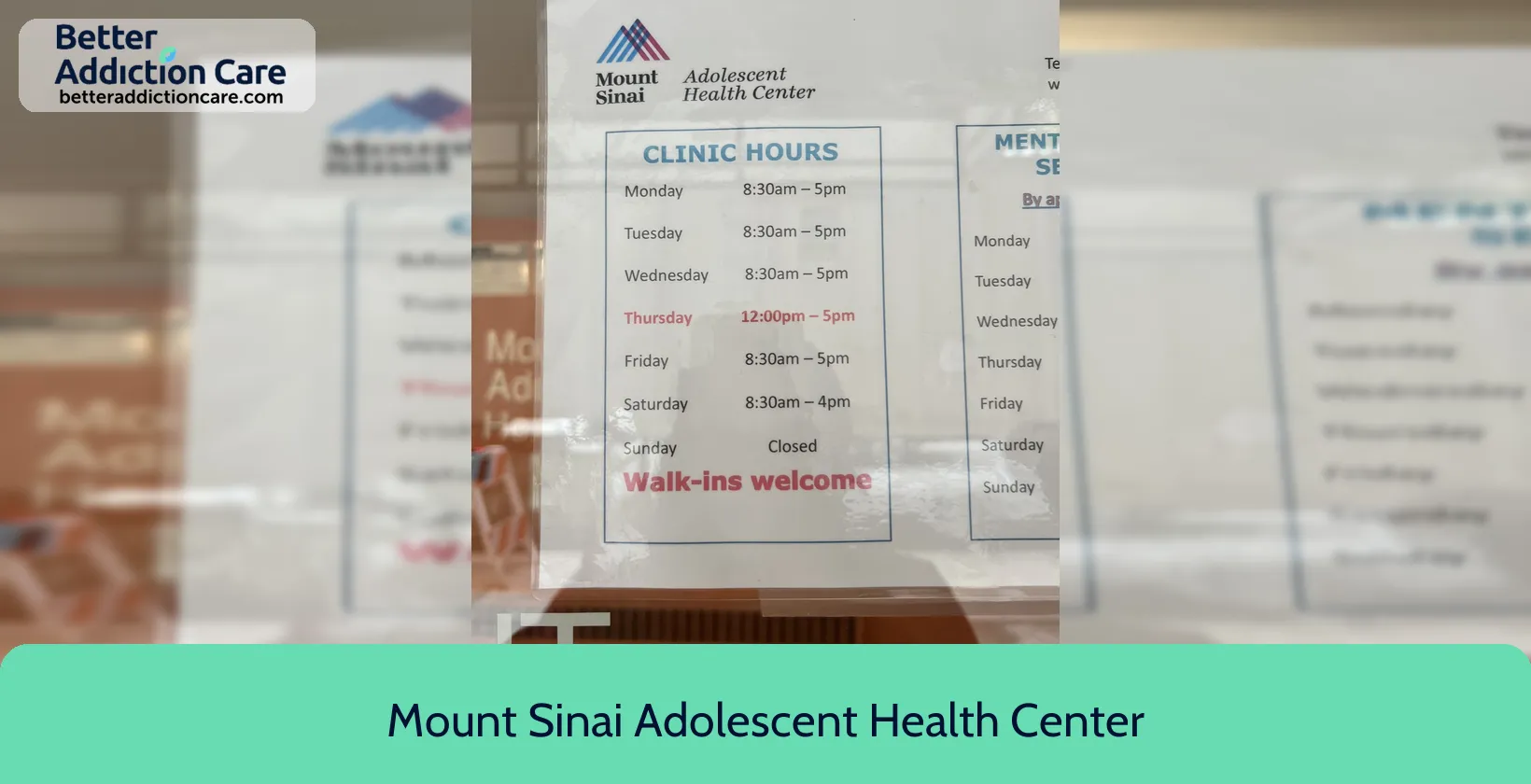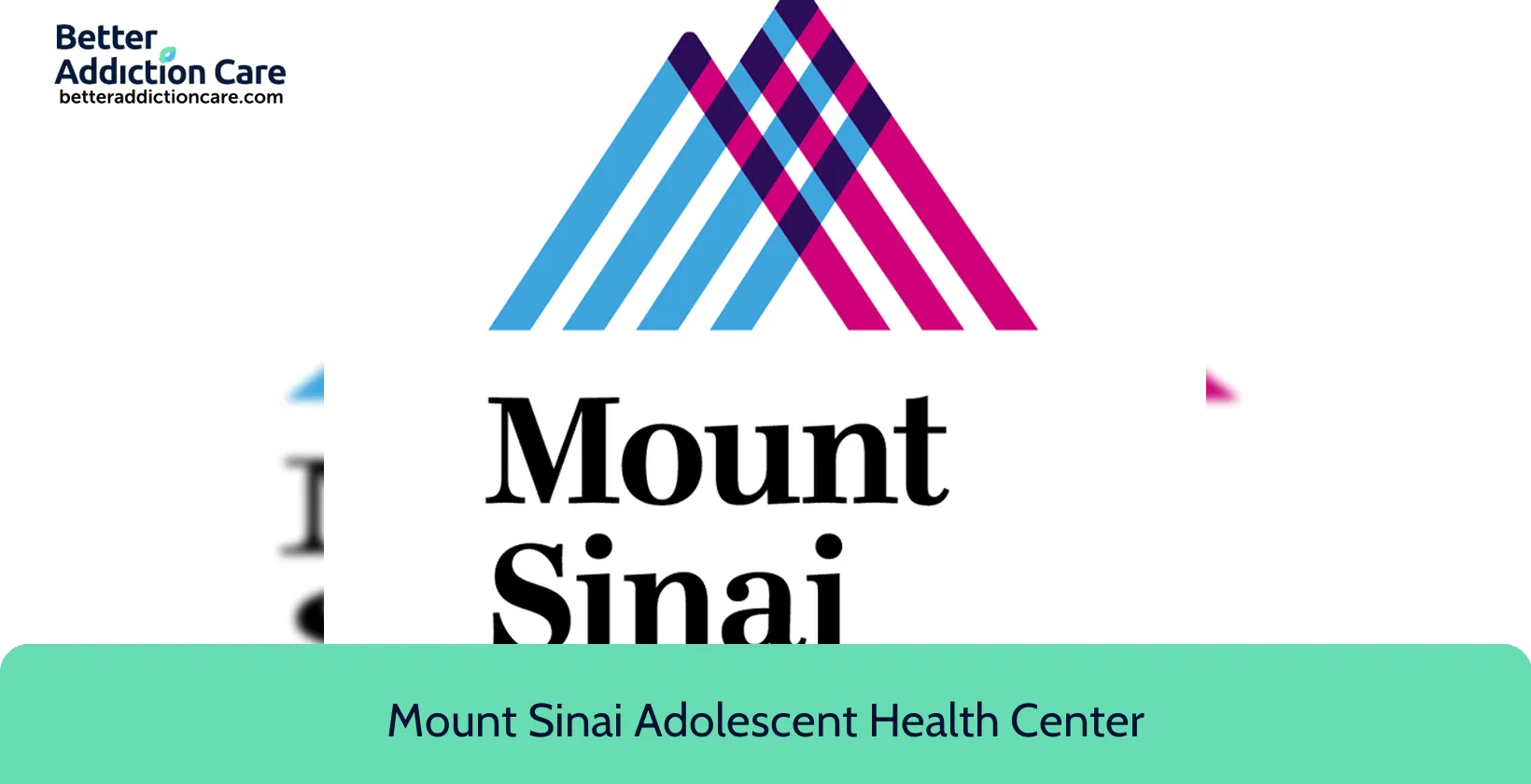Mount Sinai Adolescent Health Center
Overview
Mount Sinai Adolescent Health Center is a mental health treatment center for people seeking treatment near New York County. As part of their treatment modalities for recovery, Mount Sinai Adolescent Health Center provides family counseling, individual psychotherapy, and eating disorder treatment during treatment. Mount Sinai Adolescent Health Center is located in New York City, New York, accepting medicaid for treatment.
Mount Sinai Adolescent Health Center at a Glance
Payment Options
- Medicaid
- Private health insurance
- Cash or self-payment
- State-financed health insurance plan other than Medicaid
- Payment assistance (check with facility for details)
Assessments
- Comprehensive mental health assessment
- Comprehensive substance use assessment
- Screening for tobacco use
Age Groups
- Children/adolescents
- Young adults
Ancillary Services
- Case management service
- Chronic disease/illness management
- Court-ordered outpatient treatment
- Diet and exercise counseling
- Education services
Highlights About Mount Sinai Adolescent Health Center
6.93/10
With an overall rating of 6.93/10, this facility has following balanced range of services. Alcohol Rehabilitation: 8.15/10, Drug Rehab and Detox: 6.00/10, Insurance and Payments: 6.00/10, Treatment Options: 7.58/10.-
Alcohol Rehabilitation 8.15
-
Treatment Options 7.58
-
Drug Rehab and Detox 6.00
-
Insurance and Payments 6.00
Treatment At Mount Sinai Adolescent Health Center
Treatment Conditions
- Mental health treatment
- Substance use treatment
- Co-occurring Disorders
Care Levels
- Outpatient
Treatment Modalities
- Family counseling
- Individual psychotherapy
- Eating Disorder Treatment
- Group counseling
- Experiential Therapy
Ancillary Services
Languages
- Sign language services for the deaf and hard of hearing
- Spanish
- American Indian or Alaska Native languages
- Other languages (excluding Spanish)
- Any Chinese Language
Additional Services
- Pharmacotherapies administered during treatment
- HIV testing
Special Programs
- Clients with HIV or AIDS
- Children/adolescents with serious emotional disturbance (SED)
- Active duty military
- Persons with eating disorders
- Clients who have experienced trauma
Get Help Now
Common Questions About Mount Sinai Adolescent Health Center
Contact Information
Other Facilities in New York City

6.71

6.71

7.08

6.59

6.65

7.08

6.71

7.43
DISCLAIMER: The facility name, logo and brand are the property and registered trademarks of Harlem Hospital Center - Outpatient, and are being used for identification and informational purposes only. Use of these names, logos and brands shall not imply endorsement. BetterAddictionCare.com is not affiliated with or sponsored by Harlem Hospital Center - Outpatient.


